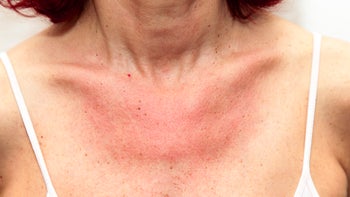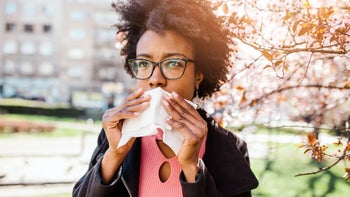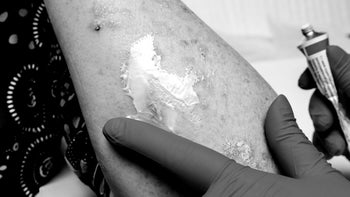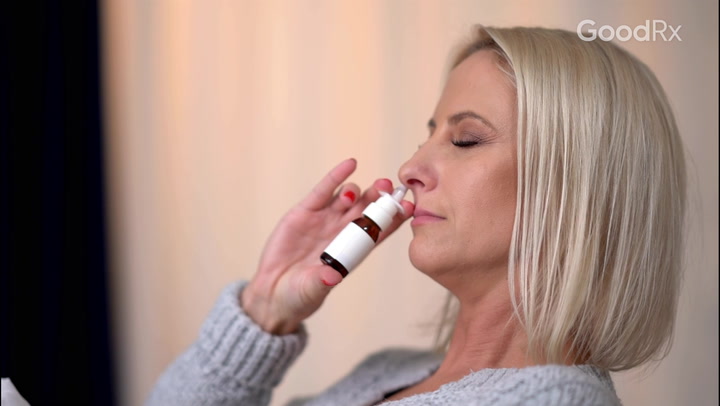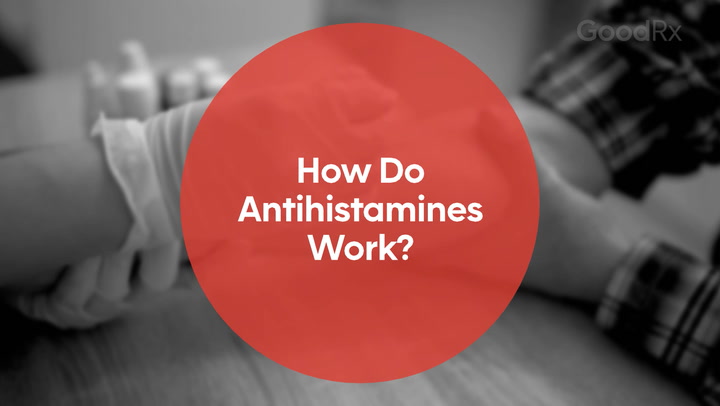
Do Allergies Cause Headaches?
Key takeaways:
You can get headaches from your allergies. Both seasonal and year-round allergies can cause sinus headaches and trigger migraines.
Headaches related to allergies usually feel like pain behind the cheekbones or eyes, along with a throbbing sensation on one side of the head.
Decongestants, antihistamines, and intranasal steroids can relieve headaches from allergies.
Table of contents

Allergy symptoms aren’t always obvious. Most people can spot common allergy symptoms like runny nose, sneezing, and itchy, watery eyes. But some people with seasonal or year-round allergies can experience less common symptoms, including headaches.
Indoor and outdoor allergies (hay fever) can trigger headaches. Here’s how to spot an allergy headache and how to get relief.
Can allergies cause headaches?
Yes, allergies can cause headaches.
Search and compare options
Allergies can trigger two types of headaches: sinus headaches and migraines. Let’s look closer at these allergy-induced headaches.
Sinus headaches
Headaches related to allergies are usually due to sinus headaches.
The sinuses are small cavities in the skull that help filter and warm the air you breathe in. Sinuses make mucus, which traps allergens, pollutants, and viruses so they can’t get into your system and cause trouble. Sinus mucus drains into the throat, cleaning out the sinuses.
But breathing in allergens all the time may lead to chronic inflammation in your nose and upper airway. This can block your sinuses from draining. Mucus and everything stuck to it can build up inside your sinuses. This causes pressure and pain. You may feel pain directly over your sinuses, but you may also experience the pain as a headache. Headaches related to allergies may feel like pain or pressure behind the eyes or on the side of your head.
Blocked sinuses may also get infected. Sinus infections can also cause a headache and face pain.
Migraines
Allergies can also trigger migraine headaches. The relationship between allergies and migraines isn’t exactly clear. But research shows people with allergies are more prone to developing migraines.
Allergy relief can be as close as your nearest pharmacy. Here’s how to choose the best OTC allergy medications.
Allergies can cause more than just an itchy, runny nose. Learn more about the most common symptoms of seasonal allergies.
It can be hard to tell if you have a cold, allergies, or both. Our experts review the subtle clues that can help you figure out whether you have a cold or allergies.
The allergies themselves don’t trigger migraines. Rather, it’s the body’s reaction to allergies that triggers migraines. When you have allergies, your nasal passages get inflamed. This can irritate your trigeminal nerve and trigger a migraine.
Allergies can also make it harder to sleep. And lack of sleep can trigger a migraine.
What does an allergy headache feel like?
If you have an allergy headache, you may experience symptoms like:
Cheekbone pain
Eye pain
Pressure behind the eyes
Runny nose
Eye redness or tearing
Throbbing on one side of the head
Pain on one side of the head or face
Pressure on one side of the head or face
Nausea
Sensitivity to light or sound
Not everyone will experience all of these symptoms, but it’s common to experience several of them at one time.
How do you know if your headache is from allergies?
It might be hard to tell if your headache is from allergies. There are many different types of headaches, and they can cause similar symptoms to allergy headaches.
But there are some clues that may suggest allergies are causing your headache like:
You only have headaches during allergy season or when you have allergy symptoms.
Your headaches started after you developed a new allergy.
Your headaches started after your allergy medication stopped working.
Your headache goes away and doesn’t come back once you start your allergy medication.
Your headache goes away within 1 week after you start treatment for a sinus infection.
It’s best to talk with your healthcare team about your headaches to make sure you’re experiencing allergy headaches and not another type of headache.
How do you treat an allergy headache?
If you’re experiencing allergy-induced headaches, there are several things you can try for relief.
Home remedies
Home remedies can ease the swelling in your nose and upper airways. This can help relieve sinus pressure and may ease your headache. Try these home remedies:
Neti pot: A neti pot is a sinus rinse that gets mucus out of your nose. This helps your sinuses drain. Remember to use distilled or sterile water to make your rinse.
Saline spray: If neti pots aren’t your thing, try a nasal saline spray or gel to keep your nose clear.
Humidifier: Humidified air is gentler on your inflamed nose and sinuses. You can run a humidifier at home. You can also sit in the bathroom and breathe in steam while a shower is running.
Hydration: Drink plenty of fluids during the day to thin out mucus so it’s easier for your body to clear.
Medications
Over-the-counter (OTC) allergy medications can help stop inflammation. This will relieve your allergy headache and stop it from coming back. Here are some popular OTC allergy medications that may help:
Antihistamines: The medications include cetirizine (Zyrtec), loratadine (Claritin), or fexofenadine (Allegra).
Steroid sprays: These sprays lower inflammation in your nose. Some common options include fluticasone (Flonase) and mometasone (Nasonex). But if you have a history of migraines, talk with a healthcare professional before starting these medications. They can increase your migraine symptoms.
Decongestants: These decrease mucus congestion and pressure in your sinus. They can be taken orally, such as pseudoephedrine (Sudafed). Or they can be taken as a nasal spray, such as oxymetazoline (Afrin). Just make sure to stop taking nasal sprays after 3 days to avoid rebound congestion.
Pain medications: Acetaminophen (Tylenol) or nonsteroidal anti-inflammatory drugs or NSAIDs (ibuprofen, naproxen) can help soothe your headache.
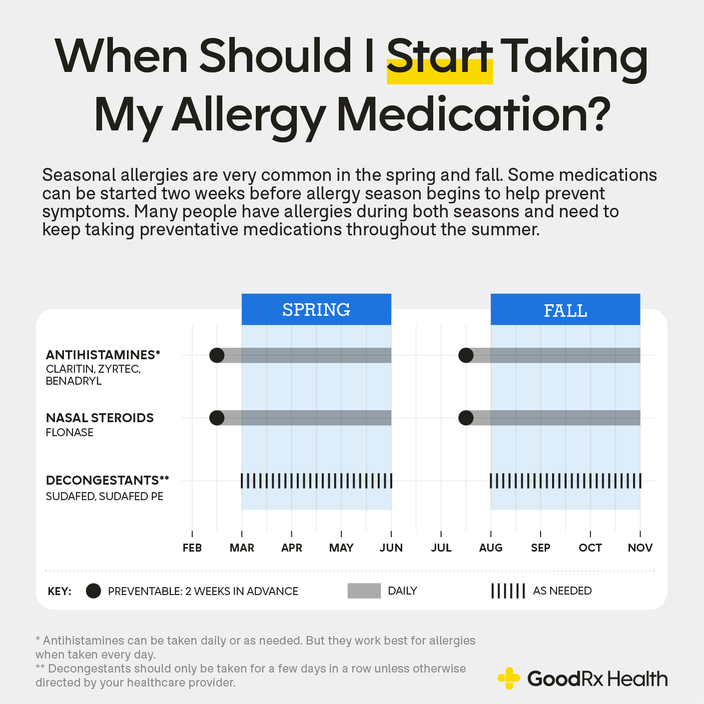
How can you prevent allergy headaches?
A great way to prevent allergy headaches before they start is to avoid things you’re allergic to. First, you need to know what your indoor and outdoor allergens are. If you don’t know exactly what you’re allergic to, talk with a healthcare professional about getting allergy testing.
Once you do know what you’re allergic to, you can take steps to avoid coming in contact with these things as much as possible. This can lower your chances of developing allergy headaches or worsening migraines.
Tips for outdoor allergens
Don’t go outside when pollen levels are at their highest level or when it’s very windy. If you need to go outside, wear a mask. If possible, take a shower as soon as you come inside. If you can’t shower, wash your hands and face to remove any allergens. Also change your clothes and wash anything you were wearing outdoors.
You should also close windows or avoid window fans that may bring outdoor allergens inside the home.
When in a car, keep your windows shut, if possible.
You can check pollen counts through the National Allergy Bureau, the only pollen and mold counting network approved by the American Academy of Allergy, Asthma & Immunology.
Tips to avoid indoor allergens
If possible, wet clean your floors to trap your indoor allergens and get rid of them. Keep in mind that sweeping and vacuuming spreads allergens and can’t trap them.
Keep your humidity low and change your air filters to keep mold at bay.
Opt for allergy-friendly covers for bedding, including pillow covers, box springs, and mattresses.
Repair any leaks or water damage as soon as possible to avoid mold growth.
When should you seek medical care for an allergy headache?
Get medical care as soon as possible if you’re experiencing a new or worsening headache. Your healthcare team can make sure your headaches are from allergies and not another condition.
Seek care right away if you have:
Intense headache that isn’t getting better or is getting worse
Fever
Vomiting
Neck stiffness
Confusion
Vision changes
Face swelling
These can be signs of a serious infection.
Get care as soon as possible if you have a history of allergies and are experiencing allergy headaches. A healthcare professional can help you change your allergy medication to best manage your allergy symptoms. If your allergies are triggering your migraines, a healthcare professional may also change your migraine medication plan until your allergies are under better control.
They may also ask you to see an ear, nose, and throat (ENT) specialist, who can look inside your nose with a camera to see if your sinuses are blocked.
If you’re not getting better with these options, you may also consider getting allergy shots. These shots can train your immune system to stop reacting to allergens.
Frequently asked questions
Allergy headaches can result from anything that can trigger seasonal or year-round allergies. This includes things like dust, pet dander, pollen, mold, smoke, and cockroaches.
Food sensitivities may trigger headaches. Some people who have migraine headaches and food sensitivities or allergies notice that their migraines get worse when they come in contact with certain foods. Headaches may also be a sign of anaphylaxis, a life-threatening allergic reaction. If you have a history of food allergies, get care right away if you develop headaches or other signs of anaphylaxis.
The bottom line
Allergies can cause headaches. Headaches related to allergies include sinus headaches and worsening migraines. Symptoms of an allergy headache include face pain or a throbbing or pressure sensation on one side of the head. Decongestants, antihistamines, intranasal steroids, and home remedies can help ease headaches from allergies.
Why trust our experts?


References
American Academy of Allergy, Asthma & Immunology. (2025). Anaphylaxis.
American Academy of Allergy, Asthma & Immunology. (2023). Headaches connected to allergies and sinus problems.
American College of Allergy, Asthma and Immunology. (n.d.). Headaches.
American Migraine Foundation. (2022). Allergies and migraine: How do they affect you?
ENT Health. (2018). Sinus headaches.
Ku, M., et al. (2006). Prevalence of migraine headaches in patients with allergic rhinitis. Annals of Allergy, Asthma & Immunology.
Zhao, Z., et al. (2021). Association of migraine with its comorbidities and food specific immunoglobulin G antibodies and inflammatory cytokines: Cross-sectional clinical research. Journal of Pain Research.



